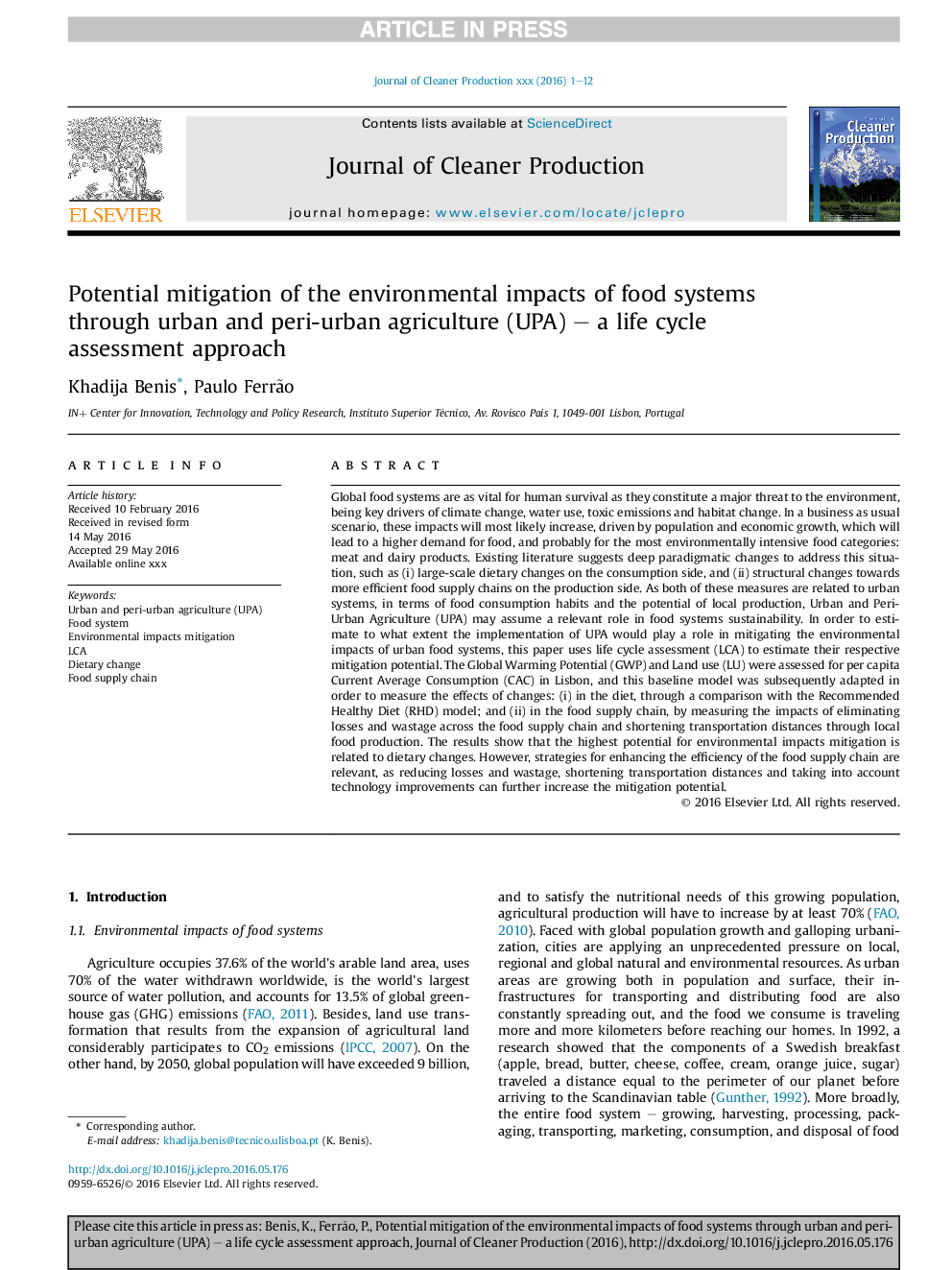| کد مقاله | کد نشریه | سال انتشار | مقاله انگلیسی | نسخه تمام متن |
|---|---|---|---|---|
| 5481551 | 1399335 | 2017 | 12 صفحه PDF | دانلود رایگان |
عنوان انگلیسی مقاله ISI
Potential mitigation of the environmental impacts of food systems through urban and peri-urban agriculture (UPA) - a life cycle assessment approach
دانلود مقاله + سفارش ترجمه
دانلود مقاله ISI انگلیسی
رایگان برای ایرانیان
کلمات کلیدی
موضوعات مرتبط
مهندسی و علوم پایه
مهندسی انرژی
انرژی های تجدید پذیر، توسعه پایدار و محیط زیست
پیش نمایش صفحه اول مقاله

چکیده انگلیسی
Global food systems are as vital for human survival as they constitute a major threat to the environment, being key drivers of climate change, water use, toxic emissions and habitat change. In a business as usual scenario, these impacts will most likely increase, driven by population and economic growth, which will lead to a higher demand for food, and probably for the most environmentally intensive food categories: meat and dairy products. Existing literature suggests deep paradigmatic changes to address this situation, such as (i) large-scale dietary changes on the consumption side, and (ii) structural changes towards more efficient food supply chains on the production side. As both of these measures are related to urban systems, in terms of food consumption habits and the potential of local production, Urban and Peri-Urban Agriculture (UPA) may assume a relevant role in food systems sustainability. In order to estimate to what extent the implementation of UPA would play a role in mitigating the environmental impacts of urban food systems, this paper uses life cycle assessment (LCA) to estimate their respective mitigation potential. The Global Warming Potential (GWP) and Land use (LU) were assessed for per capita Current Average Consumption (CAC) in Lisbon, and this baseline model was subsequently adapted in order to measure the effects of changes: (i) in the diet, through a comparison with the Recommended Healthy Diet (RHD) model; and (ii) in the food supply chain, by measuring the impacts of eliminating losses and wastage across the food supply chain and shortening transportation distances through local food production. The results show that the highest potential for environmental impacts mitigation is related to dietary changes. However, strategies for enhancing the efficiency of the food supply chain are relevant, as reducing losses and wastage, shortening transportation distances and taking into account technology improvements can further increase the mitigation potential.
ناشر
Database: Elsevier - ScienceDirect (ساینس دایرکت)
Journal: Journal of Cleaner Production - Volume 140, Part 2, 1 January 2017, Pages 784-795
Journal: Journal of Cleaner Production - Volume 140, Part 2, 1 January 2017, Pages 784-795
نویسندگان
Khadija Benis, Paulo Ferrão,